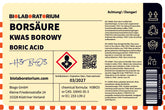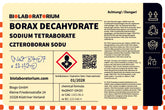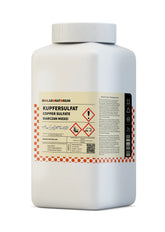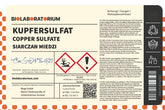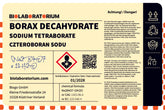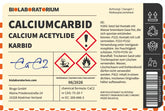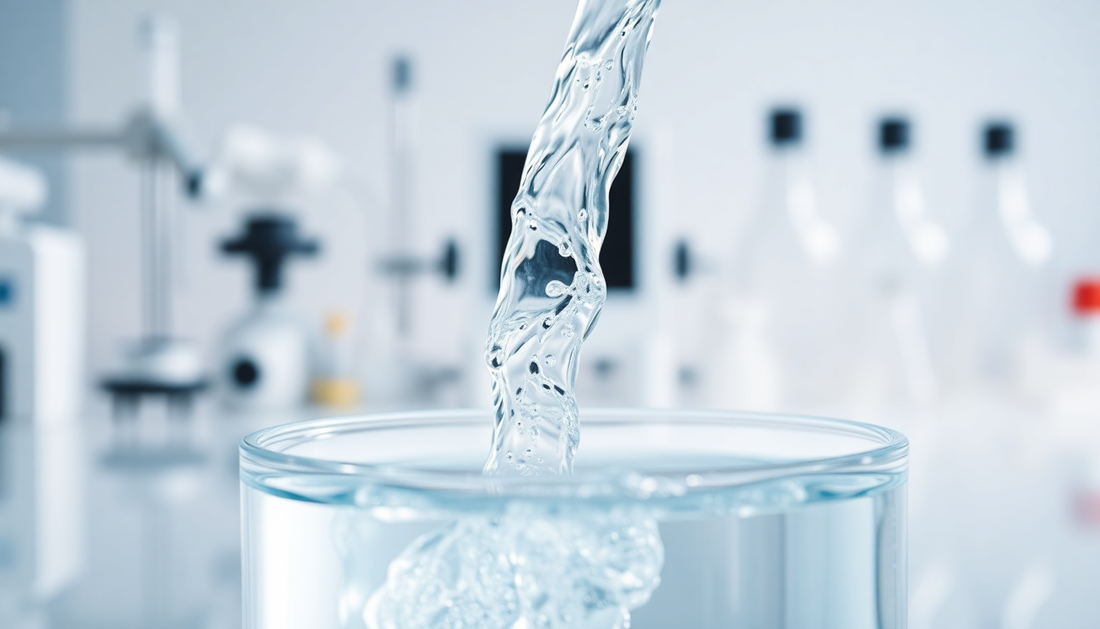Demineralized Water: The Importance of Pure Water for Technology and Laboratory
In a world where quality and precision are becoming increasingly important, demineralized water plays a crucial role. As the basis for numerous applications in industry, technology, and research, it is an indispensable component of modern processes. In this blog post, we want to take a closer look at what demineralized water is, where it is used, and why it is so important.
What is demineralized water?
Demineralized water, also called deionized water, is water from which all minerals and ions have been removed through a special treatment process. Unlike regular tap water, which contains varying amounts of calcium, magnesium, chloride, and other substances depending on its source, demineralized water is practically free of any impurities.
This state is achieved through a combination of ion exchange and reverse osmosis. In this process, minerals and ions are gradually removed from the water until an extremely high purity is reached. The result is a colorless and odorless water with a very low electrical conductivity.
Applications of demineralized water
The areas of application for demineralized water are diverse. It is used wherever the highest purity and quality are required:
Laboratory applications
In laboratories, demineralized water is an indispensable component. It is used for analyses, experiments, and measurements, as impurities could distort the results. It is also essential in the production of reagents and buffer solutions.
Technical applications
In industry, demineralized water has many uses. Examples include steam generation in power plants, semiconductor manufacturing in electronics, or the treatment of cooling water. Wherever water is used in sensitive technical processes, the highest purity is required.
Medical applications
Demineralized water also plays an important role in healthcare. It is needed for the production of injection solutions, dialysis water, and other medical products. Absolute purity is essential here to avoid impurities and contamination.
Cosmetics and personal care
Even in the cosmetics and personal care industry, demineralized water is used. It serves as a base for many products such as shampoos, creams, or lotions because it is free of minerals and heavy metals, thus not impairing the effectiveness of the ingredients.
Food production
Demineralized water also plays an important role in food production. For example, it is used in the manufacture of beverages, canned goods, or frozen products to ensure consistent quality and purity.
Advantages of demineralized water
The use of demineralized water offers a number of advantages:
High purity
The demineralization process removes practically all impurities from the water. It contains neither heavy metals nor organic residues or microorganisms that could affect quality.
Consistent quality
Unlike tap water, whose composition can vary depending on its source, demineralized water has consistent quality. This is especially important for sensitive applications such as in laboratories or medical technology.
Corrosion protection
Due to its purity, demineralized water has very low conductivity. As a result, it is significantly less corrosive than normal water and protects sensitive materials and surfaces from damage.
Optimal process control
In technical applications such as steam generation or semiconductor manufacturing, the use of demineralized water contributes to optimal process control. Mineral deposits and contamination are avoided, which increases the efficiency and lifespan of the equipment.
Improved product quality
Whether in food production, cosmetics manufacturing, or medical technology, the use of demineralized water contributes to consistently high product quality. Impurities that could affect the end consumer are reliably excluded.
Conclusion
Demineralized water is an indispensable component of modern industrial and research processes. Its extremely high purity, consistency, and corrosion resistance make it a valuable raw material in numerous fields of application. Whether in laboratories, technology, or medicine—wherever the highest quality is required, demineralized water is used and contributes decisively to the success of sensitive processes.


